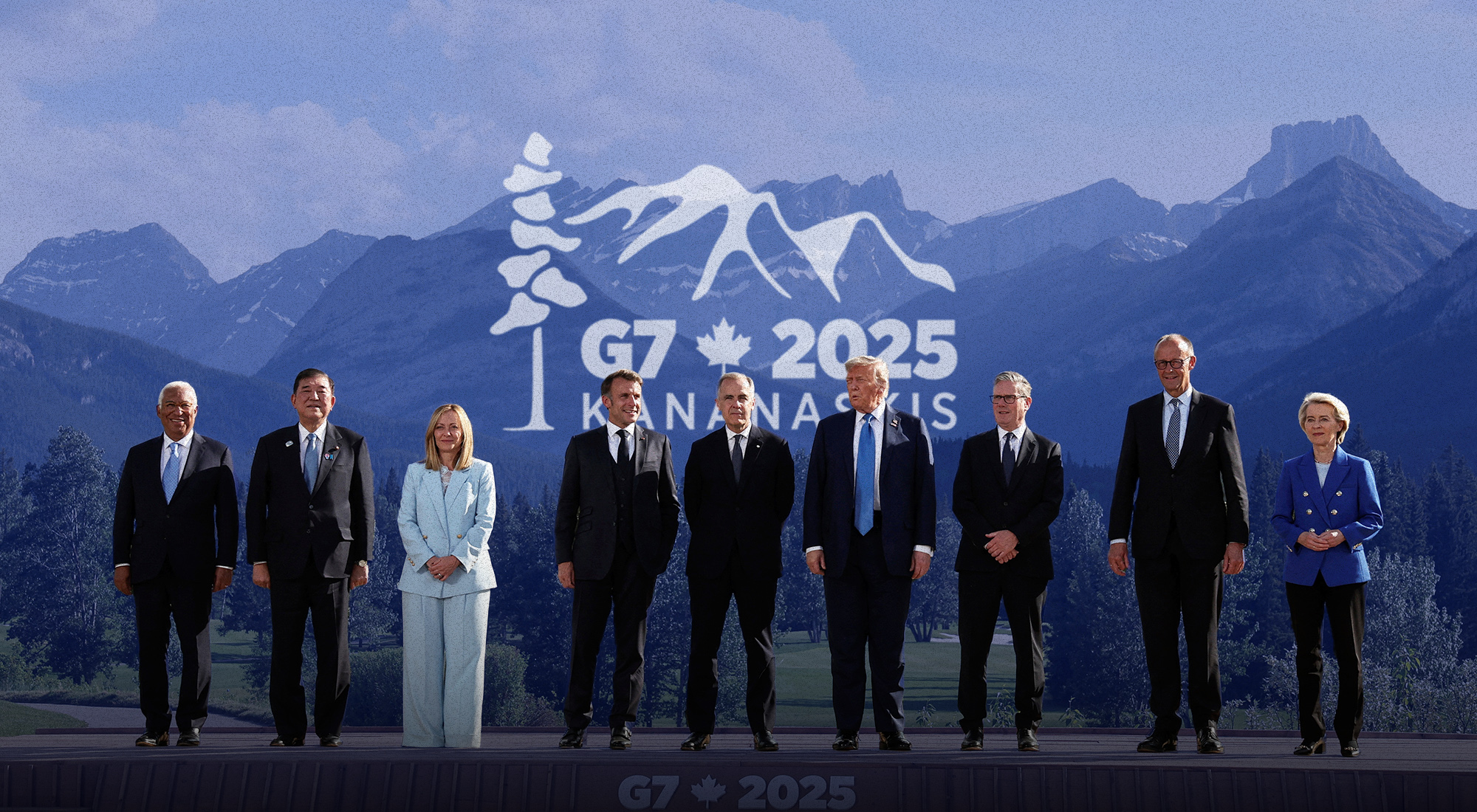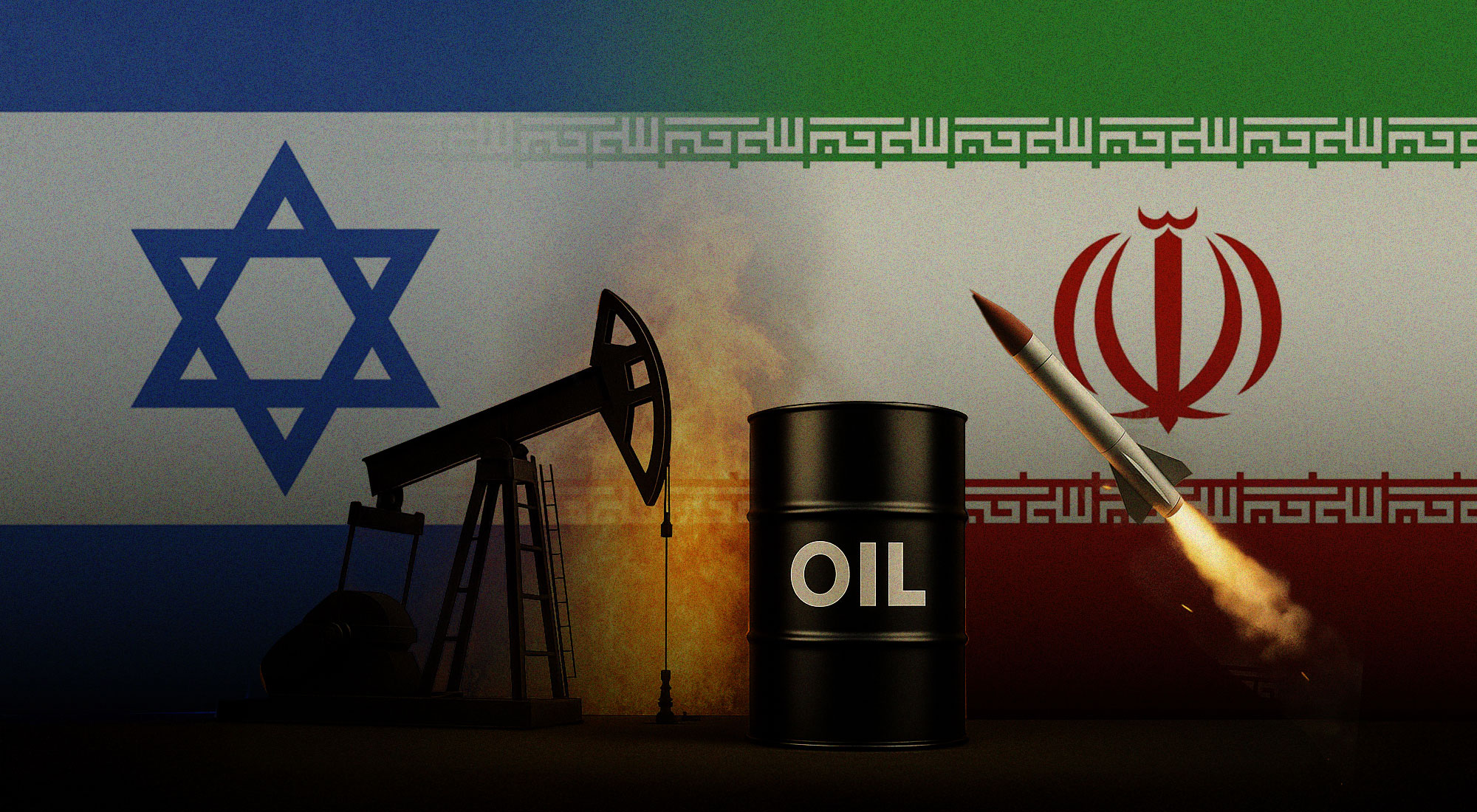Amid the unprecedented health emergency created by Covid-19, many countries have imposed measures to contain the virus’s spread. The temporary closure of many businesses and widespread curbs on mobility has prompted sharp contractions in industrial output, consumer spending, and international trade and investment. Describing it as a “crisis like no other,” the latest International Monetary Fund (IMF) World Economic Outlook[1] suggests that the global economy will shrink by 4.9 percent in 2020. Projections by the Organization for Economic Cooperation and Development (OECD)[2] are even more pessimistic, suggesting a 6 percent fall in global economic activity in 2020, rising to 7.6 percent in the event of a renewed outbreak of infections.
The lockdowns have saved many lives, but it is now the global economy that requires intensive care. The question is whether this care will be forthcoming. The Asian Financial Crisis of 1997-98 and the Global Financial Crisis of 2008 posed similar threats to global economic and financial stability. That the bloodletting from these episodes was staunched owed a significant debt[3] to the US leadership and the availability of a coterie of international economic organizations and institutions through which it, and other leading nations, were able to coordinate their response. Sadly, there is now less reason to be sanguine about these institutions’ capacity to provide a timely and effective response to the current crisis, especially in an era of diminished US leadership.
Those with a casual acquaintance with the multilateral economic institutions could be forgiven for concluding that they are in perennial disarray. These organizations have always tussled with problems similar to those they face today, including resource shortfalls, squabbling member states, and questions about their legitimacy and effectiveness. Nonetheless, there is a feeling that this time is different. Indeed with a growing number of countries openly questioning their purpose and value, even some of the foremost international economic organizations[4] may be confronting an existential moment.
The causes of the misery afflicting the world’s economic organizations are many and varied. However, the most immediate problems derive from the Achilles’ heel of global governance, namely state sovereignty. Many of the conundrums of global economic governance stem from the mismatch between the territorially-bounded authority of states and the increasingly globalized nature of the economic activity. The reluctance of states to forfeit their sovereign prerogatives precludes the possibility of a global government that replicates on a worldwide scale the rule-making and enforcement capacities wielded by national governments. Thus, the international economic organizations are a compromise, providing an apparatus through which states work toward cooperative solutions to their mutual economic problems while preserving their sovereignty.
In short, they are an attempt to supply “international public goods without international government.”[5] By joining these organizations, states agree to be bound by a standard set of rules with disputes settled by due process rather than by resort to naked power. Ongoing surveillance processes place a modicum of pressure on states to fulfill the obligations. Nevertheless, sovereignty means that states remain the supreme authorities within their jurisdiction. International economic organizations are unable to override state sovereignty, meaning they are ultimately unable to compel states to follow the commitments they have entered into. This lack of enforcement power constrains international economic organizations’ ability to discharge the mandates with which they are charged effectively.
For all their drawbacks, a veritable alphabet soup of international economic organizations[6] today provides the scaffolding of global commerce rules. After 1945, their growth in number and scale of operation is inescapably connected to the exercise of American power. During this time, the United States has been the principal architect of the spectrum of rules, norms, and institutions that embody the liberal international economic order. Materially the United States has been the biggest benefactor to almost all of the major international economic organizations, making sizable contributions to their budgets, supplying senior personnel, and providing the necessary leadership.
Conceptually, the United States consistently reiterated the case for open trade, shielding and sympathizing with like-minded allies, and the norms of multilateralism underpinning the rules-based order. This reached its apogee with George Bush Senior’s proclamation of a New World Order in 1990. In a speech to the United Nations General Assembly[7], the 41st President of the United States outlined “a vision of a new partnership of nations…..a partnership based on consultation, cooperation, and collective action, especially through international and regional organizations; a partnership united by principle and the rule of law.”
These developments seemed to presage a Golden Age for international economic organizations. In reality, in the post-Cold War scenario, relations between the United States and the international institutions became progressively fraught. Within the United States, there has always been an undercurrent of antipathy toward international economic organizations. Adherents to this view believe the norms and rules of international economic organizations impose unnecessary constraints on US freedom of action. Furthermore, they assert that while the US bears a disproportionate share of the costs associated with upholding the international economic organizations, a disproportionate share of the benefits accrues to other countries, most notably China. For the first time since 1945, the incumbent of the White House subscribes fully to this viewpoint.
Since taking office, President Trump has regularly inveighed against international economic organizations heading an administration that has, among other things, withdrawn from the Transpacific Partnership[8] and pared US budget contributions to the multilateral development banks.[9] The United States has simultaneously relinquished the leadership of international economic organizations. At the Group of Seven (G7) Summit in June 2018, the United States had to be coaxed into retaining a “commitment to promote a rules-based order” in a communique[10] from which it later withdrew its signature following an altercation over trade tariffs between US and Canada. Similarly, no communique was issued at the 2019 and 2020 Summits owing to further splits between the US and the G7 on climate change and Covid-19.
Not only is the US not leading, but its voice is also increasingly missing from a range of international debates. Delays or the outright failure[11] of the administration to appoint permanent representatives to international economic organizations, including the OECD, has left delegations headed by temporary staffers bereft of the authority that derives from White House nomination and Senate confirmation. As Charles Kindleberger,[12] the economic historian who popularized the idea that a hegemon can help to stabilize the international system once said, “it takes work to maintain regimes; in the absence of infusions of attention and money, they tend in the long run to decay.”
The United States’ intellectual stance has undergone a similar transformation. The idea advanced by previous US administrations that the world resembles a global community bound, albeit loosely, by shared ideals and institutions, is now dismissed as pious nonsense. The US believes that basing foreign policy on such a worldview had “enriched foreign industry at the expense of American industry … we’ve made other countries rich while the wealth, strength, and confidence of our country has disappeared over the horizon.” In short, the United States would now regard global cooperation as the source of, rather than as a tool to manage, domestic problems.
Writing in the Wall Street Journal[13] H. R. McMaster, the then US National Security Advisor, and Gary Cohn, then Chief Economic Advisor, summarized the administration’s mindset stating that the world is “an arena where nations, non-governmental actors and businesses engage and compete for advantage. We bring to this forum unmatched military, political, economic, cultural, and moral strength. Rather than deny this elemental nature of international affairs, we embrace it”. The message was clear. From now on, instead of underwriting costly multilateral organizations, the United States would turn its attention to bilateral deals where it could press its economic preponderance to obtain preferential deals.
All this augurs a bleak outlook for the international economic organizations. In the short term, many international organizations could probably survive, at least, the disengagement or even the withdrawal of the US. However, as we are already witnessing, US leadership’s withering at the international economic organizations is damaging their legitimacy and effectiveness. This is exemplified by the impasse at the World Trade Organization, where the US has repeatedly blocked the appointment of new judges to the Appellate Body, thereby rendering ineffective the body that referees trade disputes between member-states.[14] Budget cuts triggered by reduced contributions from the United States may also inhibit the international economic organization’s ability to fulfill their mandates.
All recent budget proposals have contained clauses to end or reduce funding for international programs and organizations whose missions do not substantially advance US foreign policy interests, or for which the funding burden is not fairly shared among members.”[15] Elsewhere, it has instructed the State Department to enact these reductions by examining “options to (a) reduce the levels of international organizations’ budgets (b) reduce US assessment rates, and /or (c) not pay US assessments in full.”[16] With the United States typically supplying between a tenth and a fifth of their budgets, these proposals have serious implications for international economic organizations’ work programs.[17]
Before consigning the international economic organizations to oblivion, states should pause to consider their benefits. To make a case for international economic organizations, it is worth reflecting for a moment on their genesis. By 1914 the world was, economically speaking, highly integrated with rapid advances in technology, communications, and commerce, sponsoring an unprecedented amplification in the intensity, extensity, and velocity of cross-border interactions. This generated demands for mechanisms to soothe the frictions arising from escalating interdependence, not least the development of harmonized rules and standards to reduce the transaction costs handicapping international transactions.
Craig Murphy’s history[18] of global governance catalogs the emergence, in the second half of the 19th century, of Public International Unions, which developed international benchmarks for telegraphic International Telegraph (now Telecommunication) Union and postal (Universal Postal Union) communication, units of measure (International Bureau of Weights and Measures), transportation (Central Office for International Carriage by Rail) and intellectual property (United Bureaux for the Protection of Intellectual Property). Other organizations acted as clearing houses for information to facilitate international trade, including the International Union for the Publication of Customs Tariffs and the International Institute for Agriculture. Almost all of these bodies survive, albeit sometimes absorbed into successor organizations operating with updated mandates.
In the intervening period, the globalizing forces that sponsored this initial paroxysm of institution-building have intensified along with demands for international economic organizations to govern them. Many citizens take for granted the existence of a world economy entwined by networks of trade, production, and finance, but this would be impossible without the frequently arcane rules, norms, and principles agreed by states at international economic organizations. As Matthew Bishop[19] has recently put it, these rules have proliferated “because the fragmented and infinitely complex nature of modern production and consumption requires ever more esoteric and finely grained forms of governance.” Trade in even straightforward products like oranges[20] and lamb[21] rests on the application of detailed technical standards regarding what constitutes a particular commodity and how it will be measured both qualitatively and quantitatively. If states wish to continue to reap the rewards of international commerce, a framework of agreed rules is vital.
The provision of a stable framework of rules that sustains a relatively open international trading system is just one example of the global public goods for which international economic organizations are responsible. A host of organizations, including the IMF, OECD, G7, G20, World Bank and the Bank for International Settlements (BIS), concert to safeguard the global economy’s stability by coordinating the economic policies of states and central banks, ensuring a stable flow of capital to developing countries, and bailing out countries encountering financial difficulties. Defusing and managing financial and other economic crises are crucial for international economic organizations. That there has been no repeat of the Great Depression, despite some of the serious upheavals that have engulfed the post-war global economy, is commonly ascribed to the availability of international economic organizations first to firefight and then to orchestrate a coordinated response.
Although the leap to prominence in times of crisis, most of the international economic organizations’ activities are prosaic. In the anatomy of global governance, international economic organizations are often conceived as the skeleton or backbone that holds the system. In reality, they are equally important for providing the system of veins and arteries that link the organs of global governance and allow them to work in concert. The international economic institutions constitute an ongoing process of organized cooperation, catalyzing experts’ networks by regularly bringing catalyzing officials from specific policy fields together both with their counterparts abroad and experts from the international civil service. Through working together in international organizations, national officials come to share similar perspectives on the world and develop a more nuanced appreciation of the problems vexing their colleagues. These contacts are important in quietly resolving tensions that might otherwise escalate into damaging economic conflict.
These networks also play a pivotal role in spotting, framing, refining, and popularizing the ideas that suffuse contemporary global governance and educating states about their interests concerning them. For example, trade in services is now a staple part of the agenda of a throng of international trade organizations. The initial momentum behind trade in services, including the invention of the term, sprang not from states but emerged spontaneously from discussions at the OECD. The OECD spent over a decade convincing states that services were tradable in a manner analogous to goods and enlightened them about the benefits of liberalizing services trade. The signing of major international treaties to govern the world’s economic problems is normally the culmination of years of patient preparation and diplomacy conducted through and by international economic organizations. These venues also provide a valuable forum in which informal conversations can continue even where formal negotiations break down.
States also need international economic organizations to bolster their domestic legitimacy. Since 1945 the role of the state has steadily expanded to encompass almost every facet of daily life. Paradoxically governments are now accountable to national audiences for an array of dilemmas that they cannot handle in isolation. High levels of economic integration mean that promises to deliver on economic goals such as employment, inflation, and balanced budgets public deficits are vulnerable to disruption by decisions taken elsewhere.
Therefore, it is understandable why many leaders and their citizens wish, in the words of the successful Brexit campaign in the UK, to “take back control,” sacrificing international cooperation to appease domestic constituents. This is wrongheaded. Domestic angst is unlikely to be assuaged by withdrawal from or dialing down engagement with international economic organizations; indeed, it may exacerbate it. First, an inward retreat is likely to worsen the problems it is designed to solve. Cutting migration, raising barriers to trade and investment, and abrogating international agreements may give states the illusion of control, but this hardly makes for a conducive business environment.
The United States’ recent protectionist moves, for instance, will not magically restore manufacturing employment.[22] Indeed, it may undermine it by provoking a trade war. Second, cooperative ventures taken via international economic organizations can enhance governments’ ability to mitigate economic disruptions and satiate citizen demands. Conversely, leaving international economic organizations may weaken it. The interests and demands of modern citizens can only be attained through some form of international economic governance. Imagine, for instance, a government informing the population that their mobile phones would not work or they could not take an international flight because they had left the ITU or the International Civil Aviation Organization.
Throughout their history, the outstanding successes of the international economic organizations have been interspersed with egregious failures. The financial crisis of 2008 is a case in point. The international economic organizations may have forestalled a descent into depression, but the failure to prevent the crisis in the first place also represented a colossal failure to deliver their mandates. To paraphrase Winston Churchill, international organizations are probably the worst form of global governance apart from all the others. Irrespective of their imperfections, these international institutions have come to comprise the essential scaffolding of global economic governance. Without them and the cooperative endeavors, they nourish the globalized economy, and the benefits that flow from it, would not exist. Barely a foreign policy speech passes without some endorsement of international organizations’ role in alleviating the headaches that accompany economic globalization.
Their ability to execute this role is now imperiled by the changing political outlook of their main patron, the United States. In their determination to put America First, the US is inadvertently perceived as unpicking the threads of global economic governance that previous administrations spent so much energy weaving together. The United States’ lukewarm support has emboldened other world leaders, often playing to domestic audiences, to denigrate the international economic organizations. These bodies are easy bogeymen for the populists. However, this had a contagion effect on other nations that started pursuing policies for their own reason. Whereas the costs of international economic organizations tend to be immediate, tangible, and fall on discrete and easily mobilized sections of society, their benefits do not command widespread public understanding because they are long-term, invisible, and dispersed. History suggests the global economy is unlikely to survive and prosper without the accompanying apparatus of international economic organizations.
References:
[1] A Crisis Like No Other, An Uncertain Recovery – World Economic Outlook, June 20, 2020
[2] OECD Economic Outlook – June 2020
[3] Daniel W. Drezner – Global Economic Governance during the Great Recession, Cambridge University Press, January 2014, Volume 66, Number 1, pp. 123-164
[4] Jeffrey J. Schott, The WTO’s Existential Crisis: How to Salvage Its Ability to Settle Trade Disputes, The Peterson Institute for International Economics, December 2019
[5] Charles P. Kindleberger – International Public Goods without International Government, The American Economic Review, Vol. 76, No. 1, pp. 1-13, March 1986
[6] Richard Woodward and Michael Davies – How Many International Organizations Are There? The Yearbook of International Organizations and its Shortcomings, Political Studies Association, October 11, 2015
[7] John Woolley and Gerhard Peters, The American Presidency Project – UC Santa Barbara
[8] Presidential Memorandum Regarding Withdrawal of the United States from the Trans-Pacific Partnership Negotiations and Agreement, Presidential Memoranda, January 23, 2017
[9] Sophie Edwards, Trump’s ‘America First’ budget slashes foreign aid, multilateral funding, Devex, March 16, 2017
[10] The Charlevoix G7 Summit Communiqué, La Malbaie, Quebec, Canada, Munk School of Global Affairs and Public Policy University of Toronto, June 9, 2018
[11] Kevin Schaul and Kevin Uhrmacher, Tracking how many key positions Trump has filled so far, Washington Post, December 3, 2016
[12] Charles P. Kindleberger, International Public Goods without International Government, The American Economic Review, Vol. 76, No. 1, pp. 1-13, March 1986
[13] H.R. McMaster and Gary D. Cohn, America First Doesn’t Mean America Alone, Wall Street Journal, May 30, 2017
[14] Keith Johnson, How Trump May Finally Kill the WTO, Foreign Policy, December 9, 2019
[15] A Budget for America’s Future, Major Savings and Reforms, Fiscal Year 2021
[16] Major Savings and Reforms, Budget of the US Government, Fiscal Year 2018
[17] John W. McArthur and Krista Rasmussen, Who funds which multilateral organizations? GLOBALVIEWS no. December 8, 2017.
[18] Craig N. Murphy, International Organization and Industrial Change: Global Governance Since 1850, April 1994
[19] Matt Bishop, Brexit and free trade fallacies Part Two, Sheffield Political Economy Research Institute (SPERI) January 16, 2017.
[20] Peter Ungphakorn, Oranges: a litmus test of UK post-Brexit tariff negotiations, Trade β Blog, September 10, 2016
[21] Ian Dunt, If Liam Fox messes up, we’re all in deep trouble, Politics.co.uk, December 15, 2016,
[22] Martin Wolf, Donald Trump’s tough talk will not bring US jobs back, Financial Times, January 31, 2017








